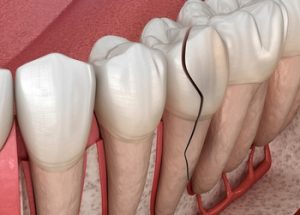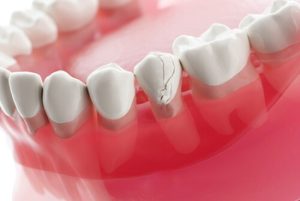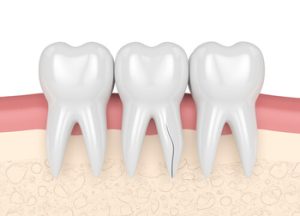A cavity-cracked tooth is a common dental issue that can lead to major discomfort and complications if left unattended. This article will go deep into the causes, symptoms, treatments, and preventive measures associated with a cavity-cracked tooth. Our aim is to provide you with comprehensive knowledge on maintaining good oral hygiene and what measures to take if you suspect a cracked tooth.
What is a Cavity Cracked Tooth?
A cavity-cracked tooth refers to a tooth that has both a cavity and a crack. Combining these two issues can lead to significant dental problems, including tooth sensitivity, pain, and potential loss.
Causes of a Cavity-Cracked Tooth
Understanding the causes of a cavity-cracked tooth is crucial in preventing it. By recognising these causes, you can proactively protect your teeth from cracks and cavities.
Biting Hard Foods
Biting down on hard foods like nuts, ice, or candies can cause teeth cracks. The enamel, the hard outer surface of your teeth, is strong but not indestructible. Constantly chewing on hard substances puts excessive force on the enamel, leading to minor cracks that can worsen over time. Avoiding such foods or being mindful can significantly reduce the risk of teeth cracking.
Teeth Grinding (Bruxism)
Teeth grinding, also known as bruxism, puts excessive stress on teeth, leading to cracks and fractures. Many people grind their teeth unconsciously, especially at night. This constant grinding wears down the tooth enamel and can cause significant damage over time. Using a mouthguard at night during sleep can help protect teeth from the harmful effects of grinding.
Tooth Decay
Dental Injuries
Trauma to the mouth, such as from a fall or an accident, can result in a broken tooth or a split tooth. Sports injuries, car accidents, or even a sudden hit to the face can cause significant damage to your teeth. Wearing a mouthguard during sports and taking precautions to protect your face can help prevent these injuries. If you experience a dental injury, seeking immediate dental care is crucial to address the damage and prevent further complications.
Chewing on Hard Objects
Chewing on non-food objects, such as pens, pencils, or even fingernails, can also lead to a cavity-cracked tooth. This habit exerts unnecessary pressure on the teeth, increasing the risk of cracks. Breaking these habits can guard your teeth from unnecessary stress and potential damage.
Ageing
As we age, our teeth naturally undergo depreciation. The enamel becomes thinner, and the risk of cracks increases. Older adults should be particularly vigilant about their oral health and take extra care to avoid habits and foods that could exacerbate tooth wear.
Large Dental Fillings
Teeth with large fillings are more likely to crumble. Large fillings can weaken the surrounding tooth structure, increasing the risk of fractures. Regular dental appointments are essential to monitor the condition of your fillings and ensure they do not compromise the integrity of your teeth.
Temperature Extremes
Exposing your teeth to extreme temperatures, such as consuming very hot or cold edibles and drinks quickly, can cause thermal stress on the enamel. This can lead to small cracks over time. Moderating the temperature of your foods and drinks can help protect your teeth from thermal stress.
Poor Oral Hygiene
Not paying attention to your oral hygiene can lead to the accumulation of plaque and tartar, which contribute to tooth decay. Weakened teeth are more susceptible to cracks. Brushing and flossing regularly and routine dental checkups are fundamental practices in maintaining strong and healthy teeth.
Previous Dental Procedures
Teeth undergoing multiple dental procedures, such as root canals or large restorations, are at a higher risk of cracking. These procedures can make the tooth structure fragile, making it more vulnerable to fractures. Ensuring that an appropriately qualified health practitioner does any dental work can help mitigate this risk.
Understanding these causes and taking preventive measures can greatly reduce the likelihood of developing a cavity-cracked tooth. Regular dental checkups, good oral hygiene, and being mindful of your habits and diet are crucial in protecting your teeth from cracks and cavities. If you suspect you have a cracked tooth or are experiencing any related symptoms, consult a dental professional promptly to address the issue and prevent further damage.
Symptoms of a Cavity-Cracked Tooth
Identifying the symptoms early can help manage and treat a cavity-cracked tooth effectively. Common symptoms include:
Tooth Pain
Tooth Sensitivity
Sensitivity to hot or cold edibles and drinks indicates that the tooth’s nerve may be exposed.
Swelling Around the Gum Line
Swelling or inflammation around the affected tooth can signal a crack or infection.
Diagnosing a Cavity Cracked Tooth
Early diagnosis is crucial in preserving the tooth and preventing more severe dental issues. Here’s how a cavity cracked tooth is typically diagnosed.
Dental Examination
A thorough dental examination by an appropriately qualified health practitioner can help identify cracks and cavities.
Dental X-Rays
X-rays provide a detailed view of the tooth’s root and surrounding structures, helping in the diagnosis.
Dye Tests
Dental professionals may use a special dye to highlight cracks in the tooth’s enamel.
Types of Tooth Cracks
Understanding the different types of tooth cracks can help you choose the right treatment.
Craze Lines
Minor cracks that only affect the outer enamel.
Fractured Cusp
Cracks that occur around a dental filling.
Vertical Root Fractures
Vertical root fracture is a crack that goes from the tooth’s root to the chewing surface.
Split Tooth
A severe form of crack where the tooth is split into two or more distinct parts.
Cracked Tooth Syndrome
A condition where a crack is not visible but causes pain and discomfort.
Treatment Options for a Cavity-Cracked Tooth
Dental professionals use various techniques to address cavity-cracked teeth, ranging from simple fillings to more complex procedures like root canals and dental crowns. Here are the common treatment options for managing a cavity-cracked tooth.
Dental Fillings
Dental fillings can restore the tooth’s integrity for minor cracks and cavities.
Dental Crowns
Crowns cover the entire tooth, giving protection and restoring function.
Root Canal Treatment
If the crack extends to the tooth pulp, a root canal may be required to discard the infected tissue and save the tooth.
Tooth Extraction
In cases of severe damage, tooth extraction may be the only option. Dental implants or other restorative procedures follow this.
Dental Resin
Dental resin can be used to bond and seal minor cracks.
Preventing Cavity-Cracked Teeth
Preventing cavity-cracked teeth involves several proactive measures. Maintaining good and regular oral hygiene through proper brushing and flossing helps prevent tooth decay and strengthen tooth enamel. Regular dental checkups are essential to ensure early detection and treatment of dental issues.
Additionally, being mindful of the foods you bite into, particularly avoiding hard foods, can prevent dental fractures. A mouthguard can protect against cracks and further decay for those who grind their teeth at night. Together, these practices can significantly reduce the risk of developing cavity-cracked teeth.
Complications of Untreated Cavity Cracked Teeth
Untreated cavity-cracked teeth can lead to several serious complications. One major issue is the development of a tooth abscess, where an untreated crack can lead to an infection. This infection can result in a painful abscess, requiring prompt medical attention.
Severe cracks and decay can ultimately lead to tooth loss, compromising oral function and aesthetics. Furthermore, infections originating from a cracked tooth can go to other parts of the mouth and body, posing significant health risks. Addressing a cavity-cracked tooth promptly is essential to prevent these complications.
Importance of Early Intervention
Early detection and treatment of a cavity-cracked tooth can prevent further damage and complications. Timely treatment reduces pain and discomfort, prevents tooth loss, and avoids the need for more invasive procedures. Preserving your natural teeth is always preferable to extraction and artificial replacements, as it maintains natural tooth structure and function.
Dental fillings and crowns play a crucial role in this process, helping maintain the tooth’s integrity and prevent further damage. Early intervention ensures long-term oral health and avoids more severe dental issues.
Frequently Asked Questions
What Should I Do If My Cracked Tooth Hurts?
If you experience pain, avoid chewing on the affected side and contact your dentist immediately.
Can a Cracked Tooth Heal on Its Own?
Minor cracks may not worsen, but they won’t heal independently. Professional treatment is necessary to prevent further damage.
How Can I Prevent Tooth Cracks?
Maintaining good oral hygiene, avoiding hard foods, and using a mouthguard if you grind your teeth are effective preventive measures.
Is a Root Canal Painful?
Root canal treatment is performed under local anaesthesia and is generally no more painful than a regular filling.
What Are the Risks of Ignoring a Cracked Tooth?
If you ignore a cracked tooth, it can lead to severe pain, infection, and tooth fracture.
Conclusion
Maintaining good oral hygiene, scheduling regular dental checkups, and being mindful of your diet can help prevent cavity-cracked teeth. Safeguard your smile and overall health by addressing dental issues without delay. Book an appointment with us today and take the first step towards a healthier, pain-free mouth.
Contact Southport Park Family Dental at 07 5655 7688 for more information.
Note: Any surgical or invasive procedure carries risks. Before proceeding, you should seek a second opinion from an appropriately qualified health practitioner.
References:
https://my.clevelandclinic.org/health/diseases/21628-fractured-tooth-cracked-tooth
https://www.medicalnewstoday.com/articles/322015
https://www.dentistryiq.com/personal-wellness/article/14201954/cracked-tooth-types-causes-and-treatments
https://www.ncbi.nlm.nih.gov/pmc/articles/PMC9562569/








